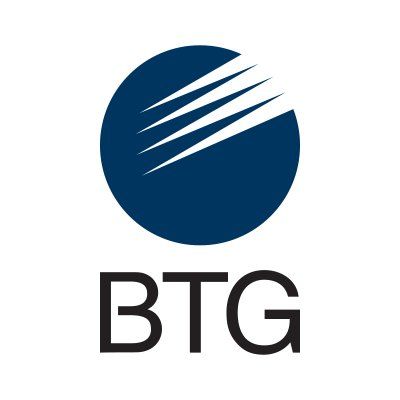预约演示
更新于:2025-05-07

Tolerx, Inc.
更新于:2025-05-07
概览
标签
内分泌与代谢疾病
免疫系统疾病
肿瘤
单克隆抗体
疾病领域得分
一眼洞穿机构专注的疾病领域
暂无数据
技术平台
公司药物应用最多的技术
暂无数据
靶点
公司最常开发的靶点
暂无数据
| 排名前五的药物类型 | 数量 |
|---|---|
| 单克隆抗体 | 2 |
| 排名前五的靶点 | 数量 |
|---|---|
| CD3(T细胞表面糖蛋白CD3复合体) | 1 |
| GITR(糖皮质激素诱导的肿瘤坏死因子受体相关蛋白) | 1 |
关联
7
项与 Tolerx, Inc. 相关的药物靶点 |
作用机制 CD3抑制剂 [+1] |
在研机构 |
在研适应症 |
最高研发阶段临床3期 |
首次获批国家/地区- |
首次获批日期- |
靶点 |
作用机制 GITR激动剂 |
原研机构 |
最高研发阶段临床2期 |
首次获批国家/地区- |
首次获批日期- |
靶点 |
作用机制 CD8抑制剂 |
在研机构- |
原研机构 |
在研适应症- |
最高研发阶段终止 |
首次获批国家/地区- |
首次获批日期- |
4
项与 Tolerx, Inc. 相关的临床试验EUCTR2010-021259-22-DE
DEFEND-1 Long Term Follow Up: Durable-Response Therapy Evaluation for Early or New Onset Type 1 Diabetes Extension Study - LTFU
开始日期2011-04-08 |
申办/合作机构 |
EUCTR2010-022549-59-DE
DEFEND 2A: Durable-Response Therapy Evaluation For Early- or New-Onset Type 1 Diabetes in Adolescents - DEFEND-2A
开始日期2011-03-03 |
申办/合作机构 |
EUCTR2008-002205-40-DE
DEFEND-1: Durable-Response Therapy Evaluation For Early- or New-Onset Type 1 Diabetes - DEFEND-1
开始日期2009-01-29 |
申办/合作机构 |
100 项与 Tolerx, Inc. 相关的临床结果
登录后查看更多信息
0 项与 Tolerx, Inc. 相关的专利(医药)
登录后查看更多信息
3
项与 Tolerx, Inc. 相关的文献(医药)2014-01-01·Molecular Genetics and Metabolism Reports4区 · 医学
Non-depleting anti-CD4 monoclonal antibody induces immune tolerance to ERT in a murine model of Pompe disease
4区 · 医学
ArticleOA
作者: Rosenberg, Amy S ; de Fougerolles, Antonin ; Banugaria, Suhrad G ; Patel, Trusha T ; Ringler, Douglas J ; Waldmann, Herman ; Prater, Sean N ; Fredrickson, Keri ; Sun, Baodong ; Kishnani, Priya S
2005-04-04·The Journal of Experimental Medicine1区 · 医学
Recruitment of Foxp3+ T regulatory cells mediating allograft tolerance depends on the CCR4 chemokine receptor
1区 · 医学
Article
作者: Wells, Andrew D. ; Hancock, Wayne W. ; Dorf, Martin E. ; Ozkaynak, Engin ; Lee, Iris ; Wang, Liqing
2004-10-01·The Journal of Immunology2区 · 医学
Induction of Immunological Tolerance/Hyporesponsiveness in Baboons with a Nondepleting CD4 Antibody
2区 · 医学
Article
作者: O’Mahony, Mark ; Winsor-Hines, Dawn ; Merrill, Christopher ; Ringler, Douglas J ; Waldmann, Herman ; Ponath, Paul D ; Cobbold, Stephen P ; Rao, Patricia E
2
项与 Tolerx, Inc. 相关的新闻(医药)2024-08-03
·药明康德
▎药明康德内容团队编辑
2022年11月,美国FDA宣布批准Provention Bio公司的Tzield(teplizumab)上市,用于缓解1型糖尿病(T1D)特定高危人群的疾病进程。FDA的新闻稿特别指出,与其他缓解糖尿病症状的药物不同,这是首款能改变T1D疾病进程的药物。它也是首款治疗T1D的免疫疗法。FDA的批准离teplizumab的首次发现已经过去了30多年,它的研发过程跌宕起伏,多次面临夭折的险境,但是在科学家和业界坚韧不拔的努力下,终于冲过了终点线,有望变革T1D的治疗。这款疗法也因其独特性登上《时代》杂志的2023最佳发明榜单。今天,药明康德内容团队将与读者分享这款新药的研发故事。
30余年合作的起点,teplizumab的首次问世
1987年,免疫学家Jeffery Bluestone博士在芝加哥大学工作时遇到了Kevan Herold博士。Herold博士是一名T1D患者,在那个年代,T1D确诊患者面对的是视力丧失、肾衰竭、神经损伤和心脏疾病的惨淡未来,以及每天如何精准控制胰岛素使用量的挑战。对T1D的亲身体验让他决定成为一名医学研究者。在未来的30多年里,他和Bluestone博士共同合作,为了开发预防T1D的抗体疗法而奋斗不息。
▲Jeffery Bluestone博士(左)和Kevan Herold博士(右)(图片来源:两位工作单位官网)
Herold博士和Bluestone博士相识的时候,FDA批准的单克隆抗体只有Ortho Pharmaceuticals公司开发的抗CD3单抗OKT3。这是一款用于预防肾脏抑制排斥的抗体。CD3是T细胞表面表达蛋白,介导T细胞杀伤外来组织。OKT3通过阻断CD3信号传导来防止器官排斥的产生。
Bluestone博士和Herold博士推测,CD3介导器官排斥的机制可能也在T1D患者中出现,在这些患者身体里,CD3错误地引导了T细胞攻击产生胰岛素的β细胞,如果能够阻断CD3通路,那么就有可能阻断T1D的疾病进展。Bluestone博士和同事一起对OKT3进行了进一步改造,降低它的潜在副作用,并且在90年代初期,与Herold博士一起检验了他们的推测。
1992年,他们联合发表了在T1D小鼠模型中的研究,发现改造后的抗CD3单克隆抗体不仅副作用降低,而且可以预防T1D的发生。这款改良的抗CD3单克隆抗体就是后来的teplizumab。两年后,另一支法国科学家领衔的研究团队也有着同样的发现。
首次临床概念验证
在动物模型中的发现让Bluestone博士和Herold博士非常兴奋,在青少年糖尿病研究基金会(JDRF,现名为Breakthrough T1D)的支持下,他们进行了进一步研究,并且开展了一项小型临床试验,在12名确诊不久的T1D患者中检验teplizumab的效果。2002年,著名医学期刊《新英格兰医学杂志》发表了他们的研究,首次提供临床证据显示teplizumab能够推迟T1D的疾病进展。
同样令人兴奋的是,牛津大学的Herman Waldmann博士带领的团队构建了另一款名为otelixizumab的抗CD3单克隆抗体,他们的研究也发现这款单抗在保存胰岛β细胞功能方面显示出可喜的前景。
这些突破性临床试验结果吸引了生物医药公司的浓厚兴趣。MacroGenics公司囊获了teplizumab的开发权益,并与礼来(Eli Lilly and Company)公司合作展开名为PROTÉGÉ的3期临床试验,旨在评估teplizumab在新确诊T1D患者中保存胰岛β细胞功能的效果。同时Tolerx公司与GSK合作,在T1D患者中展开评估otelixizumab功效的3期临床试验。如果两项试验成功,抗CD3抗体有望成为治疗T1D患者的首款免疫疗法。然而,事实的发展并不总是如人们预期的那样。
命悬一线
在接下的几年里,由于种种原因,这两项3期临床试验均没有达到试验的主要终点。PROTÉGÉ试验的入组患者构成和临床终点的选择可能导致了试验失败,而检验otelixizumab的临床试验由于担心药物的潜在副作用,导致用药剂量不足而未能观察到预期的效果。虽然事后回溯可以找出临床试验失败的种种原因,但是这些结果直接导致MacroGenics公司中止了teplizumab的临床试验和开发项目。礼来公司也退出了teplizumab的研发合作。
虽然Bluestone和Herold博士并未放弃teplizumab,并且试图说服MacroGenics公司将它卖给其他公司继续进行开发,但是在两项3期临床试验失败的情况下,谁又会愿意投入大量资金来支持teplizumab的开发呢?“人们觉得它不会成功,”Bluestone博士回忆道,“我筹集不到资金,无法创建新公司。”
Teplizumab治疗T1D的前景此时命悬一线,大多数人认为这大概是它故事的终点。
曙光初现
不过Bluestone和Herold博士从未放弃,他们对PROTÉGÉ试验的数据进行了进一步分析,发现这项试验中接受teplizumab治疗的患者体内胰岛素的代谢产物C肽的水平与安慰剂组相比显著升高。这意味着接受teplizumab治疗的患者生产了更多的胰岛素。虽然当时C肽水平并没有得到FDA认可成为临床试验的终点,但是C肽水平的数据进一步增强了Bluestone和Herold博士的信心。
图片来源:123RF
然而,对teplizumab的信心并不能解决如何获得资金来进行一项新的teplizumab临床试验的问题。幸运的是,美国国立卫生研究院(NIH)得到拨款展开了当时最大规模的T1D预防临床试验,在尚未确诊T1D的高风险患者中检验不同疗法的预防效果。Bluestone和Herold博士说服了项目负责人帮忙赞助一项名为TN-10的临床试验,在尚未确诊T1D的高风险患者中检验teplizuamb的效果。
“这是第一次我在学术报告中看到观众起立鼓掌”
TN-10的临床试验进展并非一帆风顺,在患者招募时遇到了多重挑战。因为加入这项临床试验的人群尚未确诊患上T1D,这意味着研究人员需要说服看起来健康的参与者接受可能具有潜在风险的创新疗法的治疗。这项试验原定招募160名患者,但是由于患者招募速度缓慢,研究人员最终决定只招募80名患者。由于试验的随机双盲设计,只有40名患者接受了teplizuamb的治疗,这样小的样本量能够显示出teplizuamb的疗效吗?
2019年6月,Herold博士在美国糖尿病协会(ADA)年会上宣布了TN-10临床试验的卓越结果。接受teplizuamb治疗的患者发展为T1D的时间与安慰剂组相比推迟了两年以上。几个月后,《新英格兰医学杂志》发表了临床试验结果。这意味着T1D患者有望迎来首个改变疾病进程的免疫疗法!
Bluestone博士在Herold博士汇报TN-10结果时坐在观众席里。“这是第一次我在学术报告的时候看到观众起立鼓掌。”他说。
然而,临床试验的成功并不意味着teplizuamb迈过了FDA批准的终点线。
再度碰壁
这个时候,新成立的Prevention Bio公司已经从MacroGenics公司获得了teplizuamb的开发权益,并且已经开始一项名为PROTECT的新临床试验。鉴于TN-10试验的优异结果,Prevention Bio决定基于TN-10试验的临床试验结果递交teplizuamb的上市申请。
在审评teplizuamb的上市申请过程中,FDA的专家委员会以10:7的投票结果,支持teplizuamb预防T1D的疗效。不过投票结果非常接近,意味着teplizuamb能否获批仍然难以预测。
2021年6月,Prevention Bio公司收到了FDA的完整回复函(CRL),FDA并未对teplizuamb临床试验数据提出任何疑问,但是由于在TN-10试验中使用的teplizumab是以前由礼来公司生产的库存,而上市产品将由Prevention Bio公司利用新技术生产,这两种产品是否具有可比性需要临床试验来证实。
这给teplizuamb的批准带来新的挑战,难道需要启动一个新的临床试验来检验两种产品的可比性?TN-10试验耗时5年,难道要再等5年?
冲过终点线
幸运的是,这时Prevention Bio公司已经开始了名为PROTECT的新临床试验,在这项临床试验中,有些患者接受的teplizumab来自礼来公司生产的药物库存,而另一部分患者接受的teplizumab由Prevention Bio公司生产。如果试验数据显示这两种药的效果相当,就可以回答FDA提出的问题。
在收到CRL后7个月,Provention Bio与FDA分享了PROTECT的数据,并且重新递交了teplizumab的上市申请。这一次,teplizumab成功冲过了终点线。在OKT3被改造成为teplizumab约31年之后,FDA在2022年11月17日批准它(商品名Tzield)在某些高危患者中预防T1D的进展。
Teplizumab的批准是T1D治疗上的重要里程碑,作为首个改变T1D疾病进程的免疫疗法,它改变了针对疾病症状的治疗策略。Bluestone博士在接受药明康德内容团队采访时表示,这种药物实际上是在患者真正在临床上被确诊之前就对他们进行治疗,尽管他们已经患有自身免疫性1型糖尿病。因此,这种策略将改变成本结构,因为它将避免这些破坏性疾病所带来的一些最昂贵的下游后果。
Teplizumab的研发历程充满了各种各样的挑战和挫折,它最终的成功离不开科学家、研发人员、患者组织等各方面人士的热忱、执着和不懈的奉献。他们的坚韧不拔,对未来的希望和信念,带来了改变T1D患者生活的创新疗法。让我们向所有的创新者致以崇高的敬意。
▲欲了解更多前沿技术在生物医药产业中的应用,请长按扫描上方二维码,即可访问“药明直播间”,观看相关话题的直播讨论与精彩回放
参考资料:
[1] Beating the Odds: The Improbable Story of How Perseverance, Belief, and Luck Led to the Approval of the First Life-Changing Immune Therapy for Type 1 Diabetes. Retrieved August 2, 2024, from https://www.breakthrought1d.org/news-and-updates/beating-the-odds-the-improbable-story-of-how-perseverance-belief-and-luck-led-to-the-approval-of-the-first-life-changing-immune-therapy-for-type-1-diabetes
[2] Jeffrey Bluestone, PhD. Retrieved August 2, 2024, from https://profiles.ucsf.edu/jeffrey.bluestone
[3] Kevan Herold, MD. Retrieved August 2, 2024, from https://medicine-yale-edu.libproxy1.nus.edu.sg/profile/kevan-herold/
[4] Herold et al., (1992). Prevention of Autoimmune Diabetes With Nonactivating Anti-CD3 Monoclonal Antibody. Diabetes, https://doi-org.libproxy1.nus.edu.sg/10.2337/diab.41.3.385
免责声明:药明康德内容团队专注介绍全球生物医药健康研究进展。本文仅作信息交流之目的,文中观点不代表药明康德立场,亦不代表药明康德支持或反对文中观点。本文也不是治疗方案推荐。如需获得治疗方案指导,请前往正规医院就诊。
版权说明:本文来自药明康德内容团队,欢迎个人转发至朋友圈,谢绝媒体或机构未经授权以任何形式转载至其他平台。转载授权请在「药明康德」微信公众号回复“转载”,获取转载须知。
分享,点赞,在看,聚焦全球生物医药健康创新
免疫疗法上市批准
2022-10-12
Dr. Countouriotis brings nearly two decades of leadership experience across pharmaceutical and biotechnology companies, leading the development of multiple oncology programs through approval
Michael Rosenzweig, DVM, Ph.D., appointed Executive Vice President, Portfolio Strategy and Product Development
SAN DIEGO & PHILADELPHIA--(BUSINESS WIRE)-- Capstan Therapeutics, Inc., a biotechnology company dedicated to developing and delivering precise in vivo cell engineering to patients, today announced the appointment of experienced biotechnology leader Athena Countouriotis, M.D., as Board Chair and Michael Rosenzweig, DVM, Ph.D., as Executive Vice President, Portfolio Strategy and Product Development.
“We are thrilled Athena will be leading our Board and providing senior counsel to our team from her deep experience leading the development of multiple development programs to approval. Her strategic insights will be invaluable to us as we make continued progress towards our goal of delivering precise in vivo cell engineering to patients,” said Laura Shawver, Ph.D., President and Chief Executive Officer of Capstan Therapeutics. “We are further pleased to welcome Michael to our expanding leadership team as we harness the breakthrough scientific discoveries of our founders to advance a robust pipeline of therapeutic candidates for oncology, autoimmune disease, blood disorders and fibrosis.”
Dr. Countouriotis most recently served as President and Chief Executive Officer of Turning Point Therapeutics until its $4.1 billion sale to Bristol Myers Squibb in August 2022. Prior to her role as President and CEO, she was Chief Medical Officer at several biotechnology companies, including Turning Point, Adverum Biotechnologies, Halozyme Therapeutics and Ambit Biosciences. At Ambit she helped lead the company’s initial public offering and was responsible for the clinical development of quizartinib until the company’s acquisition by Daiichi Sankyo in November 2014. Earlier in her career, Dr. Countouriotis led various clinical development organizations within Pfizer and Bristol Myers Squibb for oncology therapeutics including Sutent ®, Mylotarg™, Bosulif ® and Sprycel ®. She also serves on the Board of Directors of Iovance Biotherapeutics, Passage Bio, Recludix Pharma and Leal Therapeutics.
“Capstan’s potential to invent novel clinical paradigms for patients represents an exciting new chapter for the fields of cell therapy, gene editing and mRNA therapeutics. From broadening the indications each of these technologies can address, to streamlining manufacturing, to delivering these medicines to patients in an earlier-line treatment settings, Capstan’s in vivo cell engineering approach holds tremendous promise to transform clinical practice and overcome many of the hurdles the field currently faces,” said Dr. Countouriotis. “I am thrilled to be working with Laura, her inspiring team and Capstan’s esteemed founders, to rapidly advance this pioneering area of medicine.”
In addition to Dr. Countouriotis’ appointment, Michael Rosenzweig, DVM, Ph.D., joins Capstan’s leadership team as Executive Vice President, Portfolio Strategy and Product Development to lead the selection and advancement of Capstan’s therapeutic programs. Dr. Rosenzweig most recently served as an Entrepreneur in Residence at RA Ventures. He has more than two decades of experience across pharmaceutical and biotechnology companies, including leading oncology and immunology discovery at Merck Research Labs as well as in leadership roles at Immunext and ToleRx. He is a member of the Board of Directors of Bright Peak and the Scientific Advisory Board of Avilar.
“Capstan’s technology represents a significant new step forward in the effort to unlock the full potential of mRNA-based medicine and to deliver new applications of this technology for patients across a wider range of diseases,” said Dr. Rosenzweig. “I am thrilled to be joining this team at this exciting time, to continue to advance Capstan’s programs across oncology, autoimmune disease, blood disorders, fibrosis and stem cell editing.”
About Capstan ( )
Capstan Therapeutics is advancing precision in vivo cell engineering to develop therapeutics for a broad range of disease categories with unmet or underserved clinical need. The core technology comprises targeted Lipid Nanoparticles (tLNPs) to enable engineering or ablation of pathogenic cells in the body. The company is combining the power of cell therapy with the precision of genetic medicines to develop new treatment options for patients for oncology, fibrosis, inflammation-related diseases, and monogenic blood disorders. The Company is co-founded by pioneers in the field of CAR-based immunotherapy, nucleic acid drug delivery, tLNPs, and regenerative medicine, including experienced industry leaders, as well as academic faculty members from the University of Pennsylvania. Launched in 2022 with $165 million in Series A and seed financing from Novartis Venture Fund, OrbiMed, RA Capital, Vida Ventures, Polaris Partners, Alexandria Venture Investments, Pfizer Ventures, Leaps by Bayer, Eli Lilly and Company and Bristol Myers Squibb, Capstan has a bicoastal presence with operations in San Diego, CA and Philadelphia, PA. For more information, please visit and follow us on LinkedIn.
View source version on businesswire.com:
Contacts
Investors:
Patrick Jeanmart
Chief Financial Officer
Capstan Therapeutics
pjeanmart@capstantx.com
Media:
Rebecca Spalding
Ten Bridge Communications
+1 646-509-3831
rebecca@tenbridgecommunications.com
Source: Capstan Therapeutics, Inc.
View this news release online at:
细胞疗法免疫疗法IPO并购信使RNA
100 项与 Tolerx, Inc. 相关的药物交易
登录后查看更多信息
100 项与 Tolerx, Inc. 相关的转化医学
登录后查看更多信息
组织架构
使用我们的机构树数据加速您的研究。
登录
或

管线布局
2025年08月12日管线快照
管线布局中药物为当前组织机构及其子机构作为药物机构进行统计,早期临床1期并入临床1期,临床1/2期并入临床2期,临床2/3期并入临床3期
临床2期
1
1
临床3期
其他
5
登录后查看更多信息
药物交易
使用我们的药物交易数据加速您的研究。
登录
或

转化医学
使用我们的转化医学数据加速您的研究。
登录
或

营收
使用 Synapse 探索超过 36 万个组织的财务状况。
登录
或

科研基金(NIH)
访问超过 200 万项资助和基金信息,以提升您的研究之旅。
登录
或

投资
深入了解从初创企业到成熟企业的最新公司投资动态。
登录
或

融资
发掘融资趋势以验证和推进您的投资机会。
登录
或

Eureka LS:
全新生物医药AI Agent 覆盖科研全链路,让突破性发现快人一步
立即开始免费试用!
智慧芽新药情报库是智慧芽专为生命科学人士构建的基于AI的创新药情报平台,助您全方位提升您的研发与决策效率。
立即开始数据试用!
智慧芽新药库数据也通过智慧芽数据服务平台,以API或者数据包形式对外开放,助您更加充分利用智慧芽新药情报信息。
生物序列数据库
生物药研发创新
免费使用
化学结构数据库
小分子化药研发创新
免费使用

